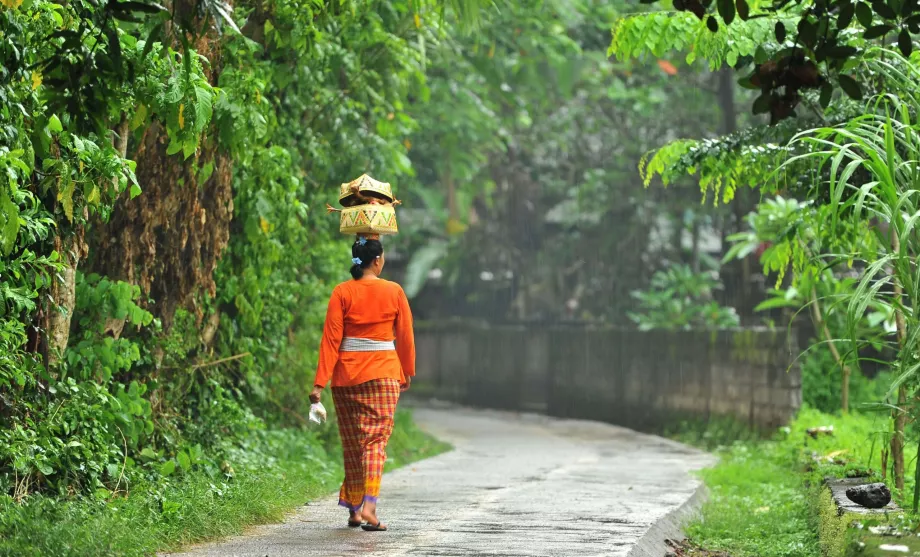Safety and security in Indonesia

What are the health risks in Indonesia? Is it safe and where are the places with the highest crime rates?
The 10 best hotels in Indonesia
Compulsory vaccinations
There are no compulsory vaccinations to Indonesia. However, it is recommended to be vaccinated for Hepatitis A, B and typhoid.
You can safely leave your antimalarials at home, the risk is minimal.
Health risks
Travel insurance that includes medical treatment is a must for the responsible traveller.
State medical centres are generally of a low standard, private hospitals and clinics are much better, and are also well equipped.
Understandably, all medical acts and procedures are paid for.
If you find yourself in a situation where you need treatment, ideally you should contact your insurance company's assistance service to discuss the next steps. You will probably be asked to pay upfront by the medical facility and the helpdesk can help deal with these situations too.
Medical services in Indonesia are often paid for in advance, even for serious life-threatening conditions! It's therefore a good idea to always carry at least the cash equivalent of around 100 eur and be able to quickly withdraw larger amounts from an ATM.
A big advantage is the availability of medicines in pharmacies. You can get medicines without a prescription and very cheaply and the pharmacy network is very dense even in the smallest towns.
Drinking water
Mains water is not potable. We recommend drinking bottled water, which is commonly available in local shops.
Dangerous animals
Indonesia is in the tropics, has warm tropical seas and rainforests. This is one of the reasons why there are animals that are dangerous to humans in Indonesia.
On the other hand, it should be mentioned that due to the high density of population, tourists will only encounter dangerous animals in the case of targeted jungle expeditions, where encounters with wildlife are expected.
Sea creatures
In the sea you can theoretically encounter dangerous animals, but usually not in the shallows and certainly not at busy beaches.
- Box jellyfish - a stinging and deadly jellyfish found in deeper waters
- Red lionfish - a beautiful fish found near coral, it can sting and sting when disturbed, causing extreme pain, but is not deadly.
- Sharks - there are many species of sharks in the deep seas around Indonesia, but they rarely come to shallow seas near beaches and islands and shark attacks on humans are extremely rare in Indonesia.
- Reef sharks - these creatures have a strong, pointed spine which they can use to stab humans, but they are rarely the first to attack.
Snakes and venomous spiders
Venomous spiders and snakes are abundant in Indonesia, but are found mainly in the jungles and countryside.
Pythons are also common.
You won't encounter snakes in towns and resorts, but if you go hiking in the tropical jungle, be cautious and ideally don't climb into the tall grass.
Mosquitoes
Mosquitoes are responsible for the most deaths of any animal. They carry diseases such as dengue fever and the Zika virus.
However, large epicentres of these diseases are not common in Indonesia, and life-threatening conditions are particularly common among the elderly.
The use of repellents when out of town is sufficient protection against mosquitoes.
Stray dogs
Potentially the greatest risk of injury to humans is not posed by venomous snakes, carnivores or sea creatures, but by domestic animals.
Free-roaming dogs are abundant in Indonesia, but depend very much on the region. Some of them belong to specific people and guard their homes, while other dogs are stray and congregate in packs.
In general, homeless stray dogs have very little aggression and are rather afraid of people. Also, there is not much danger from dogs in large cities and resorts because they are used to people.
However, if you are out in the countryside, you will come across many dogs protecting their territory and they can potentially be aggressive.
Rabies does occur in Indonesia, although it has been on a marked decline in recent years.
Avoid contact with dogs, do not feed them or pet them. They are unlikely to notice you.
By far the most stray dogs are in Bali, parts of Sulawesi or Timor and central Sumatra.
On the other hand, stray dogs are practically non-existent on the islands of Java, South and North Sumatra or Lombok.
Crime
Indonesia is relatively safe, with crime rates many times lower than in many Western countries.
Violent crimes rarely occur, rather petty crime is widespread and can be avoided with a little care, so keep an eye on your belongings and don't leave them unattended.
A greater risk is posed by various religious, ethnic and political conflicts, which, when they occur, are very often armed. These conflicts tend to be mainly regional in nature and are not directed against foreigners. However, most often these conflicts take place outside tourist areas (especially North Sumatra, but also West Papua).
Avoid drugs from a distance; the penalties for possession, sale or consumption are very severe, and the death penalty is no exception.
Disaster risk
Indonesia lies in the so-called ring of fire, which means natural disasters are the order of the day here.
The islands lie on the edge of three tectonic plates and there are about 150 active volcanoes. Earthquakes are quite common here. Some can also cause tsunamis.
Of course, they can't be predicted in advance, so be sure to study up on what to do in these cases, just in case.
Warnings about dangerous earthquakes or tsunamis are provided by the government website inatews.bmkg.go.id.
Risk of religious conflict
Indonesia is a predominantly Muslim country and Islam has traditionally been moderate and tolerant in most of its territory.
In most tourist areas, the locals are used to tourists and you can basically go around dressed however you like.
The exception to this is Aceh province in North Sumatra, where you may encounter radical views on dress (especially of women). It is recommended to wear loose, covering clothing.
If you want to stay on good terms with Indonesians, avoid touching their heads (this applies to stroking children, for example), do not point your left hand or feet at anyone (they are considered impure) and if you get angry, control yourself and do not show it (anger is considered rude).
If you are travelling as a couple, keep displays of mutual affection private.
Important contacts
You should know the following phone numbers when in Indonesia.
- Police - 110
- Fire Brigade - 113
- Medical emergency services - 118, 119
The international phone code for Indonesia is +62.
Any questions left?
If you have any questions or comments about the article...

